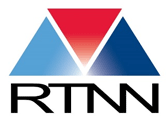
The RTNN is now seeking exceptional candidates for RTNN Program Manager, Project Scientist, and Process Engineer to join our team. Details and web links are below.
RTNN Manager: https://jobs.ncsu.edu/postings/59833
The RTNN Manager will oversee user projects within diverse nanofabrication and characterization facilities, will communicate with internal and external stakeholders, will develop and execute education and workforce training programs, and will manage multiple other aspects of the RTNN project including the collection of performance metrics data and authoring reports for the National Science Foundation. The Manager be the first point of contact for internal and external stakeholders (including users) seeking access, support, and information on facilities, equipment, and expertise of the RTNN.
RTNN Project Scientist: https://jobs.ncsu.edu/postings/59731.
The RTNN Project Scientist will execute research projects for external users, develop new instrumentation and capabilities, and assist in education and outreach activities. The Project Scientist will perform work within facilities including (but not exclusively) at the Department of Textile Engineering, Chemistry, and Science (TECS), Zeiss Textile Extension Service, and the Analytical Instrumentation Facility (AIF). In collaboration with faculty, the Project Scientist will develop new processes and techniques within TECS. The Project Scientist will assist in the creation, planning, and coordination of workforce training and events and will mentor graduate students who are working with the network in this capacity. The Project Scientist will also represent the network by giving lectures on specific processes and techniques to internal and external audiences.
RTNN Process Engineer: https://jobs.ncsu.edu/postings/60067
The Process Engineer is a full-time position that will support numerous research aspects of the RTNN and NNF programs. In particular, the Process Engineer will execute research projects for external users, develop new instrumentation and capabilities, and assist in education and outreach activities. The Process Engineer will complete project/job assignments given by the NNF Director for internal and external clients by performing work required within one of the participating facilities or laboratories of the RTNN. Projects will be heterogeneous in nature, i.e. requiring staff to work across multiple facilities to accomplish the tasks. Communication with the client, NNF Director, RTNN Manager, and facility staff is critical to the successful completion of the projects. The Process Engineer will also develop new processes and techniques that can be marketed to internal and external clients. The Process Engineer will assist in the creation, planning, and coordination of workforce training and events and will mentor graduate students who are working with the network in this capacity. The Process Engineer will also represent the network by giving lectures on specific processes and techniques.





